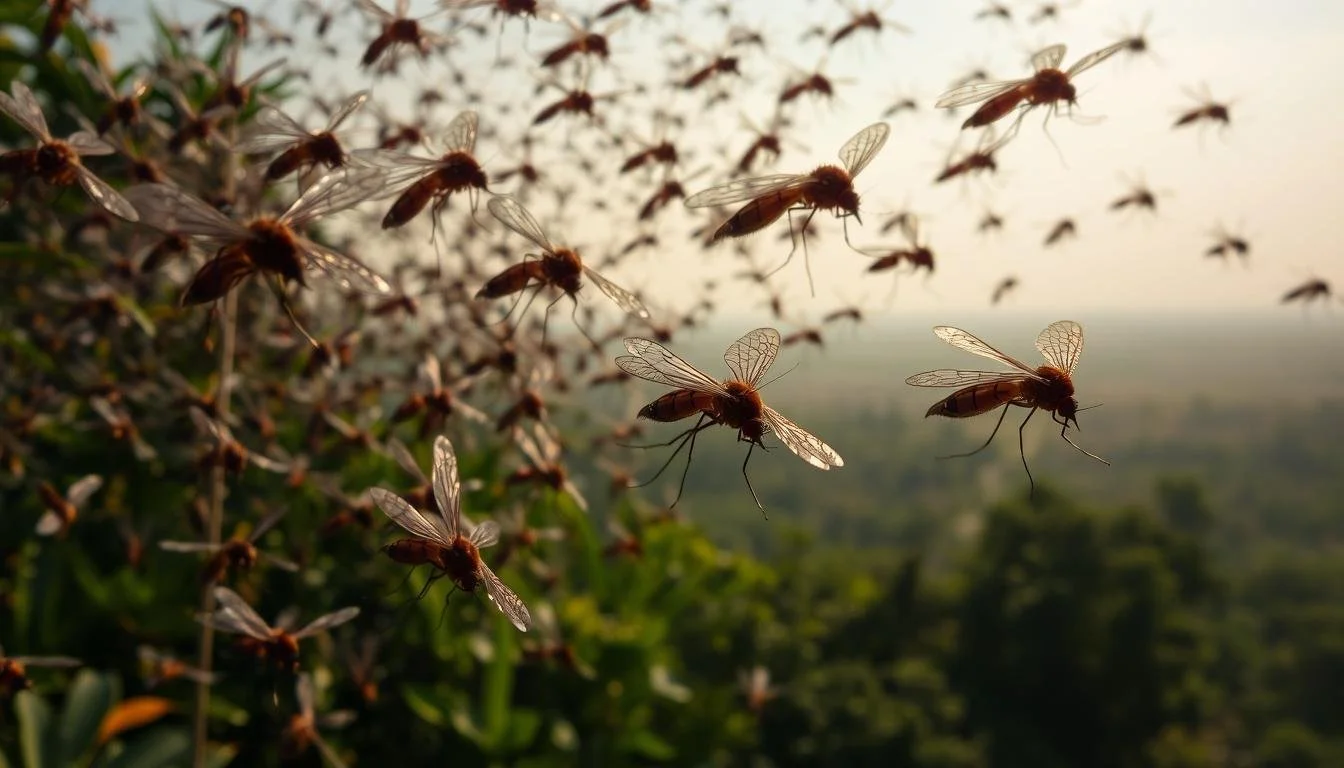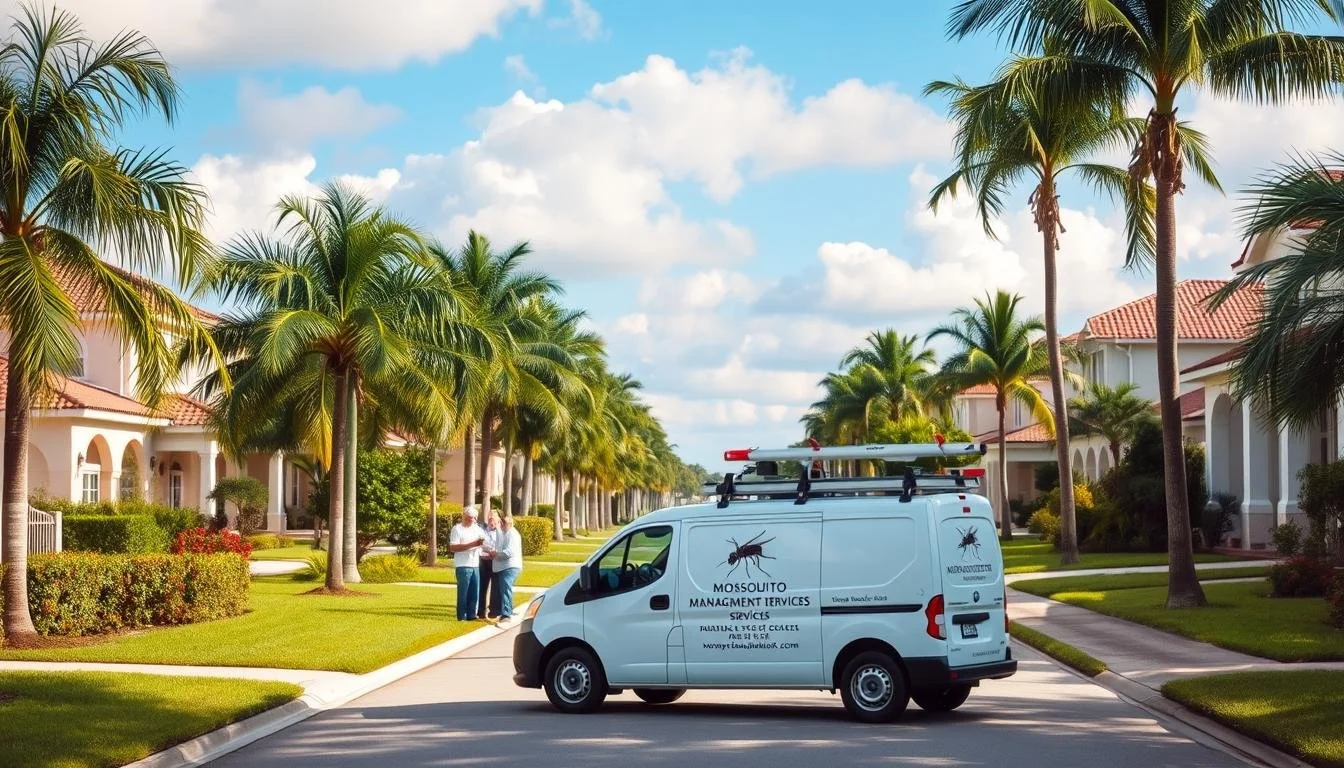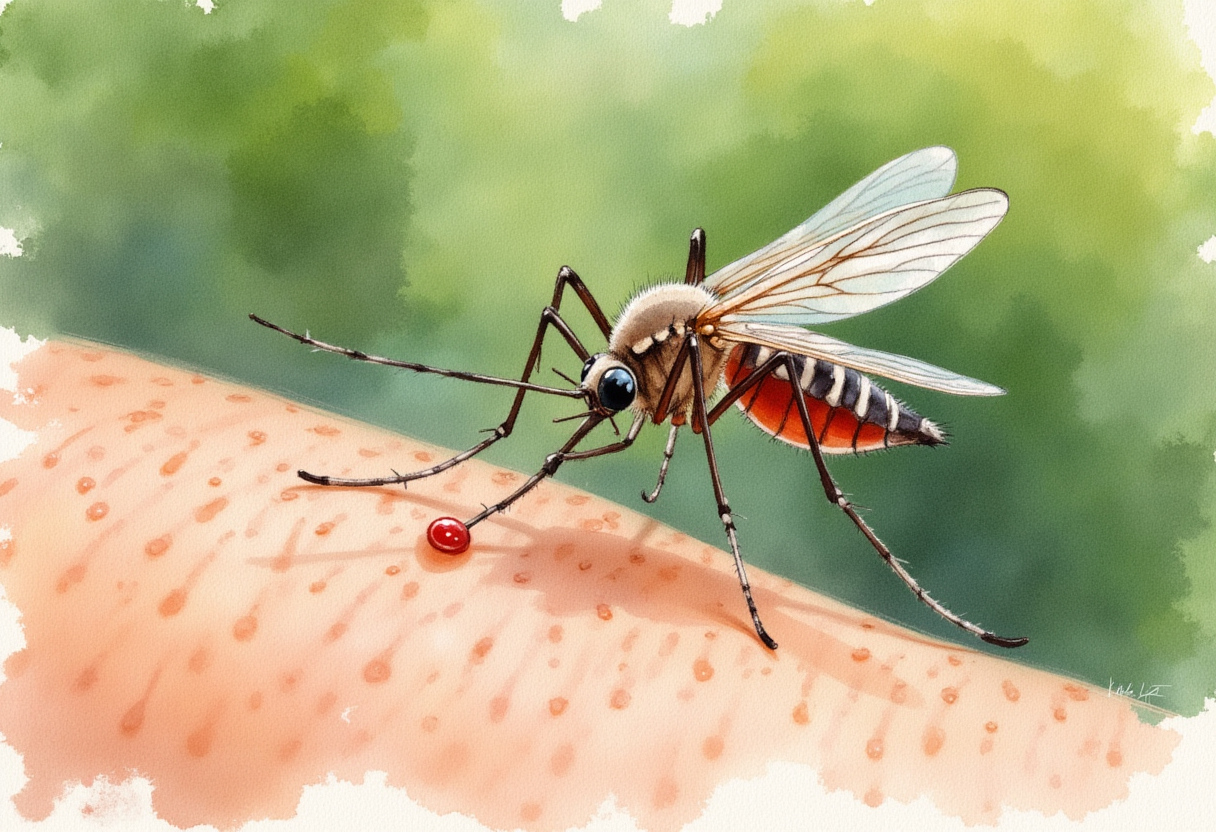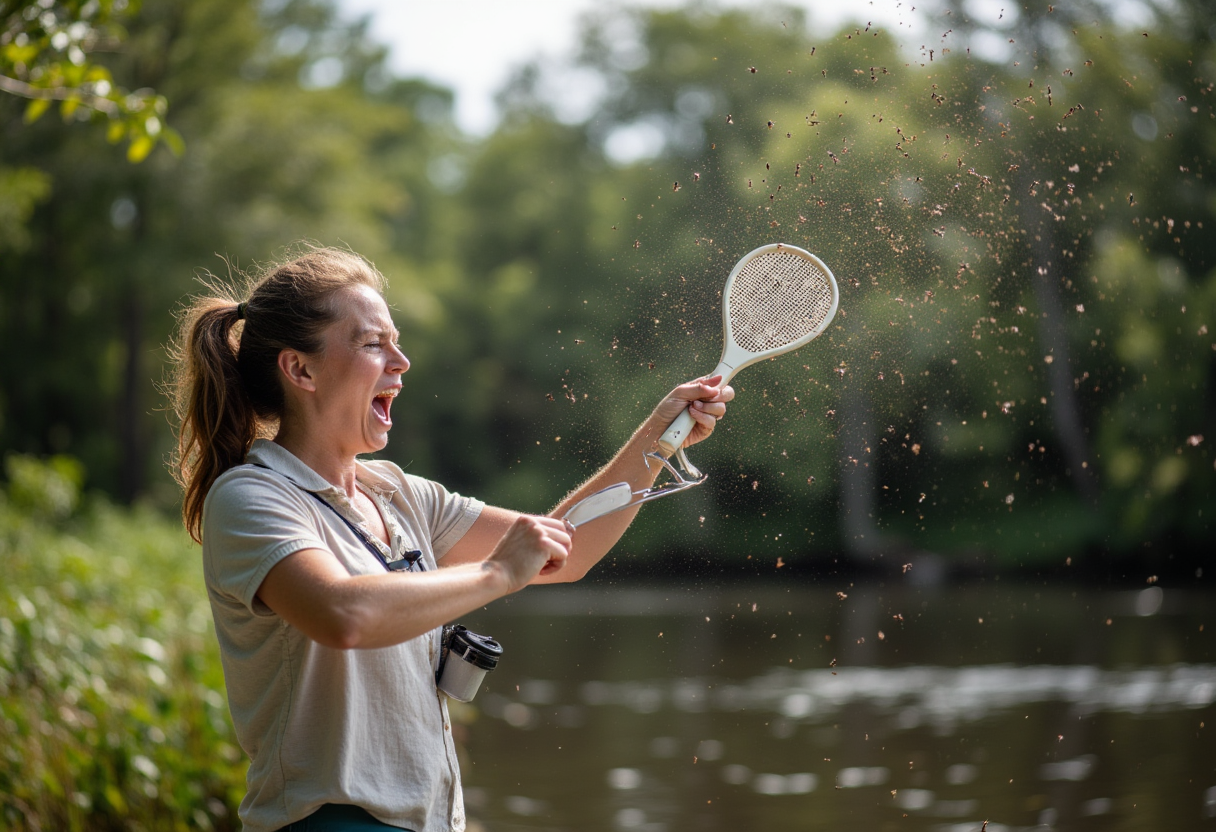Mosquito Mayhem: When Florida's Buzz Gets a Bit Too Loud
Florida's sunshine and beautiful landscapes are a perfect recipe for a paradise – but there's a not-so-welcome guest crashing the party: the pesky mosquito. We Floridians know that when the buzz gets too loud, it's more than just a nuisance; it's a threat to our quality of life and local economy.
pesky mosquitos
Mosquito
These tiny creatures are vectors for some serious health concerns, including diseases that can put a damper on our outdoor lifestyle. So, what's behind this mosquito mayhem, and how can we tackle it?
Key Takeaways
Mosquitoes pose a significant problem in Florida.
The issue affects both quality of life and the local economy.
Mosquito-borne diseases are a major health concern.
Understanding the causes is key to solving the problem.
Effective solutions require a collective effort.
Florida's Notorious Mosquito Problem
With its warm temperatures and abundant water sources, Florida is essentially a mosquito paradise. We love our sunshine and beautiful beaches, but we can't ignore the tiny creatures that come with the territory.
Why Florida Is a Mosquito Paradise
Florida's climate is characterized by warm temperatures and high humidity, creating an ideal environment for mosquitoes to thrive.
Climate Factors
The state's subtropical climate means that temperatures rarely drop low enough to kill off mosquito populations. High humidity also plays a significant role, as mosquitoes need moisture to survive.
Geographical Considerations
Florida's geography is another factor contributing to its mosquito problem. The presence of standing water, whether it's in the form of lakes, marshes, or even clogged drains, provides a perfect breeding ground for mosquitoes.
The Economic and Quality-of-Life Impact
Mosquitoes aren't just a nuisance; they have a significant impact on both the economy and quality of life in Florida. The cost of mosquito control measures is substantial, and the presence of mosquitoes can deter outdoor activities, affecting tourism and local businesses.
Impact Area Description Estimated Cost Economic Cost of mosquito control measures$100 million annuallyQuality of Life Impact on outdoor activities and tourismLoss of $500 million in tourism revenue
Understanding Florida's Mosquito Species
Florida's mosquito population is as diverse as its wildlife, with several species making the state their home. To effectively combat these buzzing critters, it's essential to understand the different types of mosquitoes that call Florida home.
Common Mosquito Types in Florida
Florida is host to a variety of mosquito species, but some stand out as particularly prevalent.
Aedes aegypti (Yellow Fever Mosquito)
The Aedes aegypti, or Yellow Fever Mosquito, is a notorious species known for spreading diseases like Zika and dengue fever. This mosquito is particularly adept at thriving in urban environments.
Culex Species
Culex mosquitoes are another common type found in Florida. They're known for their role in spreading West Nile virus and are often found in stagnant water.
Anopheles Species
The Anopheles mosquito, while less common in Florida than in some other parts of the world, is still a significant concern due to its role in malaria transmission.
Breeding Habits and Life Cycles
Mosquitoes breed in standing water, and their life cycle includes four stages: egg, larva, pupa, and adult. Understanding these habits is crucial for effective mosquito control.
Mosquitoes breeding ground
Peak Mosquito Seasons in Different Florida Regions
Mosquito activity varies across Florida, with some regions experiencing peak mosquito seasons at different times.
RegionPeak Mosquito SeasonSouth FloridaYear-round, with peaks in summer and early fallCentral FloridaLate spring through early fallNorth FloridaSummer months, with a decline in activity by early fall
By understanding the types of mosquitoes, their breeding habits, and when they're most active, Floridians can better protect themselves against these pests.
Health Risks Associated with Mosquitoes
Mosquitoes in Florida are more than just pesky insects; they're vectors for serious diseases. When we think about the health risks associated with mosquitoes, it's not just about the itchy bites or the annoying buzz around our ears. It's about the potentially life-threatening diseases they carry.
Mosquito-Borne Diseases in Florida
Florida's subtropical climate makes it a haven for various mosquito species, some of which are carriers of dangerous diseases. Let's take a closer look at some of the most significant mosquito-borne diseases found in Florida.
West Nile Virus
West Nile Virus (WNV) is a prime example of a mosquito-borne disease that's a serious concern in Florida. Transmitted primarily through the bite of an infected Culex mosquito, WNV can cause severe neurological illness in humans.
Dengue Fever
Dengue fever, also known as "break-bone fever," is another significant health risk. While it's more commonly associated with tropical regions, Florida's climate makes it a potential hotspot for dengue outbreaks, especially with increased travel to and from endemic areas.
Zika Virus
Zika virus, which gained international attention for its link to birth defects, is also transmitted by mosquitoes, primarily the Aedes species. Florida has had its share of Zika cases, highlighting the need for continued vigilance against mosquito-borne diseases.
Disease Primary Vector Symptoms West Nile VirusCulex MosquitoFever, headache, body aches, skin rash, swollen lymph glandsDengue FeverAedes MosquitoHigh fever, severe headache, pain behind the eyes, joint and muscle painZika VirusAedes MosquitoFever, rash, headache, joint pain, conjunctivitis
Vulnerable Populations
Some populations are more vulnerable to the effects of mosquito-borne diseases than others. These include the elderly, young children, and people with compromised immune systems. For these groups, a mosquito bite can be more than just an inconvenience; it can be a serious health threat.
Recognizing Symptoms of Mosquito-Borne Illnesses
Being able to recognize the symptoms of mosquito-borne illnesses is crucial for early diagnosis and treatment. While symptoms can vary depending on the disease, common signs include fever, headache, and body aches. If you're experiencing these symptoms, especially during peak mosquito season, it's essential to seek medical attention.
Environmental Factors That Worsen Mosquito Problems
The Sunshine State's notorious mosquito mayhem is often exacerbated by a combination of climate change, urban development, and natural disasters. Let's dive into how these environmental factors contribute to Florida's mosquito woes.
Climate Change and Mosquito Populations
Climate change is like a mosquito's best friend - it brings warmer temperatures and more humidity, creating ideal conditions for these pesky insects to thrive. As temperatures rise, mosquitoes can breed faster and survive longer, leading to an increase in their populations.
Standing Water and Urban Development
Standing water is a breeding ground for mosquitoes, and urban development often inadvertently creates more of it. As we build more homes, roads, and other infrastructure, we can alter natural water flows, creating stagnant pools that mosquitoes love. It's like rolling out a welcome mat for these unwanted guests.
Natural Disasters and Mosquito Surges
Natural disasters like hurricanes and flooding events can significantly impact mosquito populations. After a big storm, the flooded areas become a mosquito paradise, leading to a surge in their numbers.
Hurricane Aftermath
After a hurricane hits, the standing water left behind is a perfect breeding ground for mosquitoes. This can lead to a significant increase in mosquito-borne diseases, making it crucial for residents to take preventive measures.
Flooding Events
Flooding events, whether due to hurricanes or heavy rainfall, can also lead to an increase in mosquito populations. The key is to eliminate standing water around homes and public areas to prevent mosquito breeding.
Mosquito Prevention Methods
Mosquito breeding grounds in Florida
Understanding these environmental factors is crucial in combating Florida's mosquito problem. By addressing climate change, managing standing water, and being prepared for natural disasters, we can work towards reducing mosquito populations and the risks they pose.
DIY Mosquito Prevention Methods
Florida's sunny days are a delight, but the mosquitoes that come with them are a real buzzkill. To enjoy the outdoors without the nuisance, we've got some effective DIY mosquito prevention methods to share.
Eliminating Standing Water Around Your Home
One of the simplest ways to prevent mosquito breeding is by eliminating standing water around your home. Mosquitoes need water to lay their eggs, so removing potential breeding sites is crucial.
Weekly Maintenance Checklist
Check and clean gutters
Empty flowerpots and bird baths
Cover water storage containers
Problem Areas to Monitor
Keep an eye on areas prone to water accumulation, such as clogged drains and low-lying areas in your yard. Regularly inspect your property to catch potential mosquito breeding sites early.
Landscaping Strategies to Reduce Mosquito Habitats
Your landscaping choices can significantly impact mosquito populations. Consider planting mosquito-repelling plants like citronella or lemongrass, and keep your grass trimmed to reduce hiding spots for mosquitoes.
Personal Protection Measures
When outdoors, personal protection is key. Wear protective clothing like long sleeves and pants, and apply insect repellent regularly.
Clothing Choices
Opt for light-colored, loose-fitting clothing to help prevent mosquito bites. Avoid perfumes and colognes that can attract mosquitoes.
Activity Timing
Be mindful of peak mosquito hours, typically dawn and dusk, and plan your outdoor activities accordingly.
Prevention MethodEffectivenessEase of ImplementationEliminating Standing WaterHighMediumLandscaping StrategiesMediumHighPersonal ProtectionHighHigh
Effective Mosquito Control Products
When it comes to tackling Florida's notorious mosquito problem, having the right mosquito control products can make all the difference. With the vast array of options available, it's essential to know what works and what doesn't.
Repellents: What Works and What Doesn't
Mosquito repellents are a crucial part of any mosquito control strategy. But with so many options on the market, choosing the right one can be overwhelming.
DEET-Based Products
DEET-based products are among the most effective mosquito repellents available. With concentrations ranging from 10% to 100%, they offer varying levels of protection. For most adults, a 30% DEET product is sufficient, providing up to 8 hours of protection.
Natural Alternatives
For those looking for a more natural approach, picardin and oil of lemon eucalyptus are viable alternatives. While they may not last as long as DEET-based products, they offer a more pleasant scent and are generally considered safer for children.
Yard Treatments and Barriers
For a more comprehensive approach, yard treatments can significantly reduce mosquito populations. Products containing permethrin are particularly effective, as they not only kill mosquitoes but also provide a barrier against ticks and other pests.
Product TypeActive IngredientDuration of ProtectionDEET-Based RepellentDEETUp to 8 hoursNatural RepellentPicardinUp to 4 hoursYard TreatmentPermethrinSeveral weeks
Indoor Protection Solutions
For indoor protection, mosquito repellent plugins and candles can be effective. Look for products containing citronella or lemongrass for a pleasant and mosquito-free indoor environment.
Natural and Eco-Friendly Mosquito Solutions
Let's face it: mosquitoes are the ultimate party crashers in Florida – but we've found some eco-friendly ways to show them the door. As we explore natural mosquito solutions, you'll discover that a mosquito-free yard is within reach without harsh chemicals.
Mosquito-Repelling Plants for Florida Gardens
Some plants are like the superheroes of the garden world – they naturally repel mosquitoes, making your outdoor space more enjoyable. Consider adding:
Citronella: Known for its oil, which is used in many mosquito repellents.
Basil: A kitchen staple that mosquitoes don't like.
Lavender: Not just for its calming effects; it's also a mosquito deterrent.
Biological Control Methods
Biological control involves using living organisms to control mosquito populations. It's like having your own mosquito-fighting squad.
Mosquito Fish
Mosquito fish are tiny, but they eat mosquito larvae, making them a valuable ally. You can introduce them to ponds or water features.
Bat Houses
Bats are voracious mosquito eaters. Installing bat houses can encourage these flying friends to hang out in your yard.
Essential Oils and DIY Repellents
Essential oils can be used to create effective mosquito repellents. Some popular choices include:
Essential OilRepellent PropertiesLemon EucalyptusHighly effective against mosquitoesTea Tree OilKnown for its insect-repelling propertiesPeppermint OilCan deter mosquitoes with its strong scent
Mix these oils with a carrier oil and apply them to your skin or clothing for a natural mosquito repellent.
Professional Mosquito Management Services in Florida
When the mosquito buzz gets too loud, it might be time to call in the professionals for some serious mosquito management services in Florida. While DIY methods can be effective, there are situations where professional intervention is necessary to ensure your yard is mosquito-free.
single mosquito on human skin, about to bite
When to Call the Professionals
If you're dealing with a severe mosquito infestation or if your attempts at mosquito control have been unsuccessful, it's time to call in the experts. Professionals can assess the situation and provide tailored solutions to fit your needs.
Types of Professional Treatments
Professional mosquito management services offer a range of treatments, including:
Barrier Sprays: Creating a barrier around your yard to prevent mosquitoes from entering.
Misting Systems: Automated systems that spray mosquito repellent at regular intervals.
Larvicide Applications: Targeting mosquito larvae before they hatch.
Mosquito Management Services
Cost Considerations and Effectiveness
The cost of professional mosquito management services varies depending on the treatment type, yard size, and frequency of application. However, the effectiveness of these services can be significant, providing a mosquito-free zone that enhances your outdoor living experience. As one expert notes,
"Professional mosquito control services can reduce mosquito populations by up to 90%."
Investing in professional mosquito management services can be a game-changer for Floridians tired of battling mosquitoes. By understanding when to call the professionals and what treatments are available, you can enjoy your outdoor spaces without the nuisance of mosquitoes.
Conclusion: Living with Florida's Buzzing Reality
Florida's mosquito problem is a persistent issue that affects us all - from ruined backyard barbecues to serious health risks. We've explored the various mosquito species, their breeding habits, and the environmental factors that exacerbate the problem.
Living with mosquitoes in Florida requires a combination of awareness, prevention, and proactive measures. By understanding the risks and taking steps to eliminate standing water, using effective repellents, and considering professional mosquito management services, we can reduce the nuisance and health threats posed by these pests.
As we navigate the complexities of Florida's mosquito problem, it's clear that a collective effort is needed to mitigate the issue. By working together and adopting a range of solutions, we can make our communities more livable and enjoyable, even in the face of this buzzing reality.
Embracing the challenges of living with Mosquitoes and addressing the Florida Mosquito Problem head-on will help us create a more resilient and mosquito-friendly environment for everyone.
A person swatting frantically at an invisible swarm of mosquitoes
FAQ
What are the most common mosquito species in Florida?
Florida is home to several mosquito species, including the Aedes aegypti (Yellow Fever Mosquito), Culex Species, and Anopheles Species, which are known to transmit diseases like West Nile Virus, Dengue Fever, and Zika Virus.
How can I eliminate standing water around my home to prevent mosquito breeding?
To eliminate standing water, check your yard weekly for areas that collect water, such as pet water dishes, clogged drains, and flowerpots. Use a mosquito larvicides or empty containers to prevent mosquito breeding.
What are some effective mosquito repellents for outdoor activities?
DEET-based products, picaridin, and oil of lemon eucalyptus are effective mosquito repellents. Always follow product instructions and take necessary precautions to avoid exposure.
How can I protect myself from mosquito-borne diseases?
Wear protective clothing, apply insect repellent, and avoid outdoor activities during peak mosquito hours (dawn and dusk). Remove standing water around your home and use mosquito nets if necessary.
What are some natural and eco-friendly ways to control mosquitoes?
Plant mosquito-repelling plants like citronella, lemongrass, and lavender in your garden. Use mosquito fish or bat houses to control mosquito populations, and consider using essential oils like peppermint, tea tree, and eucalyptus as natural repellents.
When should I consider hiring professional mosquito management services?
If you have a severe mosquito infestation or if you're experiencing mosquito-borne disease outbreaks, consider hiring professional mosquito management services to effectively control mosquito populations.
What are some common mosquito-borne diseases found in Florida?
Florida is prone to mosquito-borne diseases like West Nile Virus, Dengue Fever, and Zika Virus. Take necessary precautions to prevent mosquito bites and reduce the risk of disease transmission.
How does climate change affect mosquito populations in Florida?
Climate change contributes to the rise in mosquito populations by increasing temperatures, humidity, and extreme weather events, creating ideal breeding conditions for mosquitoes.
"Thanks for reading. Until next time, keep exploring Florida's peculiar charm!
Earl Lee





